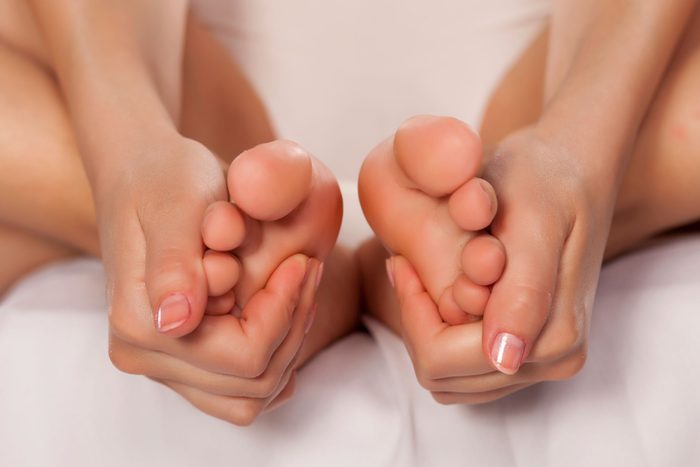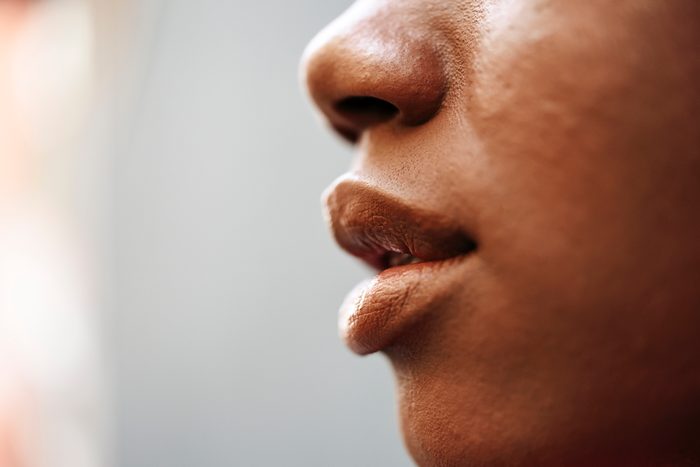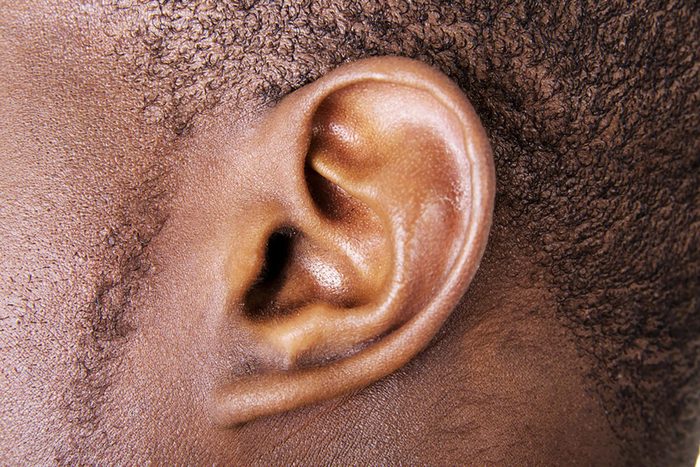Understanding stress
Everyone feels stressed once in a while. Stress is how your body reacts to any kind of challenge. Sometimes it’s routine and isn’t all that bad. Stress can motivate you to perform your best in a job interview, for example, or when a student is taking a test.
But stress can also affect your health. It can impact your sleep, cause headaches and digestive issues, and make you angry and irritable. Fortunately, there are steps you can take to manage stress. And sometimes all it takes is a few seconds.

How to relieve stress: Take a deep breath
Dealing with sudden stress—a phone call filled with bad news, a last-minute assignment from your boss, or an argument with your spouse—triggers a cascade of physical and mental symptoms that can be hard to stop. The first thing to do? Pay attention to your breathing pattern, and make an effort to start taking slow, deep breaths. This is the foundational step of breathing exercises for stress relief.
“Breathing can change how we feel because emotions and breathing are closely connected,” says Emma Seppala, PhD, author of The Happiness Track and a Stanford University psychologist who’s done research on yogic breathing. “A revealing research study showed that different emotional states are associated with distinct respiration patterns.”
In a follow-up study, participants actually started to feel the emotions that corresponded to an assigned breathing pattern. “This finding is revolutionary. We can change how we feel using our breath!” Seppala says. Deep breathing gets more oxygen to your brain and may lower levels of the stress hormone cortisol. Here’s how to learn healthy breathing.

How to relieve stress: Check your thoughts
When your thoughts start to spin out of control during a stressful moment, stop and reframe your thinking. “By your choice of perspective, you direct how your body will respond—in fight or flight, or in creative choices and solution-based responses,” says Lauren E. Miller, stress relief and personal excellence expert and the author of 5 Minutes to Stress Relief.
If you’re stressed about something you fear happening, such as “I’m not going to get this project done and then my boss will fire me,” think instead of what a great opportunity it is to show your boss you’re a hard worker. “Resist the urge to cast yourself as the main character in dramas that have not even occurred,” Miller says.
Also, instead of asking why something is happening, ask what you can do to fix it. “Asking ‘why’ pitches you in an endless loop of questions, whereas asking ‘what’ sets you into problem-solving mode,” says psychologist Deborah Serani, award-winning author of Living with Depression and a psychology professor at Adelphi University. “Moving forward instead of being lost in the circle of worries and “whys” helps to reduce stress.” Try these simple mindfulness stress relievers.

How to relieve stress: Say a mantra
Words can be great stress relievers. One technique to quell sudden stress is to repeat a phrase from which you draw power and strength. “Think positively about releasing what is bothering you by repeating a positive mantra that uplifts you such as, ‘I am at peace,’ ‘All is well,’ ‘I choose to think thoughts that serve me,’ or ‘I love and believe in myself fully,'” says Carol Whitaker, life transformation expert and the author of Ridiculously Happy! The Secret to Manifesting the Life and Body of Your Dreams.
“This too shall pass” is another good one. Repeating a mantra is actually a type of meditation that can make you more resilient to stress, according to research published in the European Journal of Integrative Medicine. You can place reminders of your mantras near the places you tend to get stressed, like your workspace.
“I actually keep a file on my computer of great quotes and inspiring sayings. So when I’m feeling overwhelmed by life’s struggles, I clip them to my screensaver, post them on my social media, and even print them out to put on my refrigerator or desk,” Serani says.
Need ideas? Here are 8 morning mantras to get you started.

How to relieve stress: Say thank you
When stress attacks, it can feel like your whole world is crashing down. Remind yourself what’s good in your life with a quick gratitude round-up. “Studies show gratitude techniques like counting your blessings can be a significant stress reducer,” Serani says. “Gratitude research reports that those who utilize daily gratitude reflections have higher levels of positive emotions, life satisfaction, vitality, optimism, and lower levels of depression and stress.”
Reminding yourself of the good things in life can put stress in perspective. “Studies show that cultivating an optimistic mindset can help you maintain a positive mood,” Whitaker says. “When you are positive and grateful, you are able to handle difficult situations better.” Just look out for these stress relievers that actually backfire.

How to relieve stress: Find a happy place
Escape from a stressful situation by remembering a favorite vacation spot or a place where you feel cozy and at home. “Make sure to take note of every detail of your favorite spot—the more detailed your visualization, the more stress gets kicked to the curb,” Serani says. “For me, it’s a beautiful spot on the beach in my native Long Island. But it’s not just the white velvet sand of the beach or the teal blue ocean water; it’s the sounds of the surf, the tang of the saltwater, the feel of the sun, the waves in the distance, and the imagined walk I take along the water.” You can combine this with a three-word mantra such as “blue-ocean-water,” Serani suggests.
Miller calls the visualization of a memory that evokes a positive association an “anchor.” She remembers watching beautiful sunsets in Costa Rica. “Now that I am back in the hustle and bustle of life, I will often pause and take mini-retreats, bringing up the anchored experience of inner calm that I felt watching the sunsets,” she says. Here’s how nostalgic thoughts make you happier.

How to relieve stress: Correct your posture
Slumping can be an outward sign of stress—not to mention that bad posture actually puts more physical stress on your body. “People who are overly stressed often display their worries in their body carriage,” Whitaker says. “Those who are weighed down with stress commonly have a poor posture or struggle with aches and pains in their body. They often slouch when sitting or concave their body inwards with rounded shoulders as they go about their business under the weight of the burdens they carry.”
Taking a few seconds when you feel stressed to check your posture and sit up straight (like your mother told you) can help you feel better. “Studies show that poor posture is related to anxiety, depression, helplessness, and irritability, so keeping your chin up and shoulders back will help,” Serani says. Happy and confident people naturally tend to stand a bit taller. Here are the other stressors you didn’t know you had.

How to relieve stress: Strike a pose
Yoga poses can also be great stress relievers. “Power posing” takes good posture one step further and can help you take control of your stress. “Consider using a superhero power pose to fight off stress,” Serani says. “Research states that posing like Superman—arms crossed, legs apart, and chin up—can bring forth feelings of strength.”
In addition, some poses derived from yoga can also help you feel empowered (like the warrior pose) or calm (like the cat pose). “Shashankasana, or moon pose, can be done with buttocks placed on the folded legs and bending forward completely, head on the ground in front of the knees,” says Savita Joshi, a yoga therapist at Yoga Bharati. “During stress, one may stay in this pose longer with knees kept apart so that hips can lower down on to the heels and head touches the floor. This pose improves the blood circulation in the head region, and directs the vital energy toward it.”

How to relieve stress: Get some air
Turns out, science says there is something to needing “fresh air”—even opening a window can help get more oxygen to your brain, soothing stress. “We live so much of our lives indoors, that when stress hits, one of my go-to techniques is to get outside or open a window,” Serani says. “Taking in a nice deep breath of crisp fresh air can immediately shift your neurochemistry.”
If you’re overwhelmed with work, it can seem hard to take a break. But a quick step outside is even recommended by the American Psychological Association. When you come back, you’ll be recharged and ready to take on the challenge. Need help getting outside? Here’s how to get out the door.

How to relieve stress: Unclench your muscles
You might not realize it, but when you’re stressed, every muscle in your body tenses up. Taking a moment to recognize this and actively relaxing each part of your body can help. According to Whitaker, common stress-storing places are the jaw, neck, shoulders, back, and stomach.
“The Instant Relaxation Technique is a deliberate tightening of the entire body, starting from the toes to the head region, and letting it go instantly,” Joshi says. “This is an effective way to become self-aware of our muscles and letting go of stress very quickly.” While you do this, picture all the negative emotion and tension leaving your body. Look out for these 8 silent signs stress is actually making you sick.

How to relieve stress: Use physical pressure to ease mental pressure
Science shows that massages reduce stress, but you don’t have to go to the spa—you can give yourself one right now. “Learning how to self-massage your foot, head, neck, or shoulders reduces the stress hormone cortisol, boosts your immune system, and increases the feel-good hormones oxytocin, dopamine, and serotonin,” Serani says.
You can even use a tennis ball or cold water bottle on your feet or neck. In addition, try rubbing pressure points like the webbing between your thumb and index finger, or your inner wrist. Here’s how to learn the art of self massage.
Another method is the EFT tapping technique, where you tap certain points on your body such as between your eyes, your temples, and the center of your collarbone. “Tapping brings cleansing energy to the meridian points, as your mind directs the energy to what’s unbalanced in the body,” Whitaker says. “This restores your mind and body’s natural balance, which aids in releasing stress, worry, fears, and disharmony.” Don’t miss the signs you are headed for a nervous breakdown.

How to relieve stress: Sound it out
You’ve heard the “om” sound yogis make when they meditate, right? Well, Joshi says using a buzzing sound is another way to use your voice to calm yourself when you’re stressed. “Bhramari, a humming bee sound, can be done by closing the eyes and making the humming sound like a bee,” she says. “These sound vibrations calm down the thought waves and relax the entire nervous system. External sound frequency resonates with the internal rhythm of the body and mind, creating peace and tranquility within.” Research from India has shown Bhramari to improve cardiovascular patterns. Press your ears closed for an even stronger vibration. Check out these other ways to unwind that don’t involve booze.

How to relieve stress: Shake it off
Stressed? You can literally shake it off. “In Africa and other cultures, shaking therapy is used for emotional healing—literally shaking off your perceived emotional threat of fear, self-doubt, or worry,” Miller says. “Next time you find yourself emotional because of a specific situation that sideswipes you in life, imagine the irritation beading up on your body and start shaking it off from your feet all the way up to the top of your head.” Picture an animal shaking off after getting out of the water, and use the shaking as a release of the emotional attachments causing you stress. Plus, “most of the time when I use this technique, I end up flipping my frustration into laughter, which is always a great endorphin mood booster!” Miller says. Here are more proven ways to boost your mood.

How to relieve stress: Look in the mirror
You know how movie characters always look at themselves in the mirror when faced with a tough situation? Well, giving yourself a quick pep talk in the looking glass can actually help relieve stress. “‘Mirror work‘ is done by looking in a mirror and vocally speaking positive affirmations to yourself with affectionate conviction, to release worry or to improve your self-confidence,” Whitaker says.
To relieve stress in the moment, she suggests using a restroom mirror, your car’s rear-view mirror, or even a compact. “Calm your mind by saying encouraging affirmations aloud to yourself, such as, ‘I am excellent at what I do,’ ‘I’ve got this! I am amazing,’ ‘I am an asset to this company,’ or ‘I am awesome!'” she says.

How to relieve stress: Write it down
When your mind is all over the place, organizing your thoughts into a quick to-do list can help transfer the burden from your brain to paper. But for some people, seeing a long list of tasks can increase stress. Miller has another idea: a “stressor and action” sheet. “Fold a piece of paper in half lengthwise, and on the left column write ‘stressor’ and on the right-hand column write ‘action,'” she says. “You will find as you write down thoughtful action steps to the things that are stressing you out, you regain authority over circumstance.” These are the signs you’re more stressed than you realize.

How to relieve stress: Use all your senses
Stress affects your whole body, so find a pick-me-up for each of your senses. Turning on a favorite tune uses your sense of hearing for a science-backed burst of good feeling, and using aromatherapy uses your sense of smell to relax you. “Oils like lavender and lemon reduce stress,” Serani says. “Also, don’t forget that your sense of smell is the most nostalgic of all your senses,” so if you have a scent that reminds you of comfort, keep it on hand to sniff when you’re freaking out.
Your sense of touch can be employed by stroking a “talisman”—a favorite or sentimental item—or even an “intention stick,” which you can hold like a wand to feel more in control. Chew gum to use your sense of taste to curb stress (scientists think it’s the lasting flavor, not just the act of chewing itself, that makes gum such a great stress reliever).
Besides using your mind’s eye to visualize a happy place, you can use your sense of sight to look at calming images—cat videos on the internet have actually been scientifically proven to lower stress.
Next up: Check out these stress “facts” psychologists want you to stop believing.

